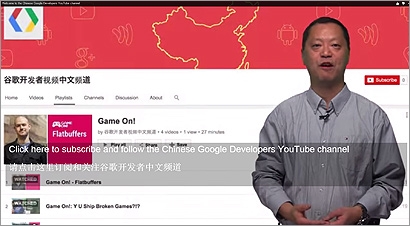
Google launched on U.S.
President's Day a Chinese-language and captioned YouTube Developers channel in an effort to continually open its Android platform to mobile developers in China. The move is intended to make it easier
for developers in China to learn more about Google services and technologies, yet it may not be that easy. The Great Wall of China seems to have moved from the physical world to online.
The channel includes original content in Mandarin, and curates content from the English version of the Google Developers channel with Simplified Chinese captions. Nanyang GDG, located in
China, contributed to the Chinese-language translations to the English language Google Developer Channel videos on YouTube. Google said it will produce more Chinese-language original content, as well
as continue leveraging GDG volunteers in China to add more content.
advertisement
advertisement
Android leads in the operating system language for Chinese developers despite Google's rocky relationship with China's
government over online censorship. The move could tap a large developer community in China that would help to build its presence in the country. Google offered uncensored search results, but the
country's government continues with attempts to censor anti-government sentiment.
In November 2014, the search giant brought Google Play to China, potentially allowing developers in China to make money from apps listed in the
online store throughout more than 130 countries. It allowed Chinese developers to offer both free and paid applications through various monetization models, including in-app purchasing and
subscriptions. For revenue generated on Google Play, developers receive payment to their Chinese bank accounts via USD wire transfers.
It may not be that easy. The Great Wall Of China seems to
have moved from the physical world to the online. The Hollywood Reporter reports that China's sensors are cracking down on showing Hollywood content, a start to putting a stop to video
content across the country's networks, television and online. The state body regulating the television industry has taken aim at seven Internet-TV providers, warning them that any breach of
strict censorship laws would likely result in their licenses being revoked, per the Hollywood Reporter.
Last month, the State Administration of Radio, Film and Television (SARFT) in China
ordered Internet-TV set-top box providers Wasu and BesTV to cut off downloading and streaming channels. SARFT claims the content contains politically incorrect, pornographic or pirated "'forbidden'"
foreign content.